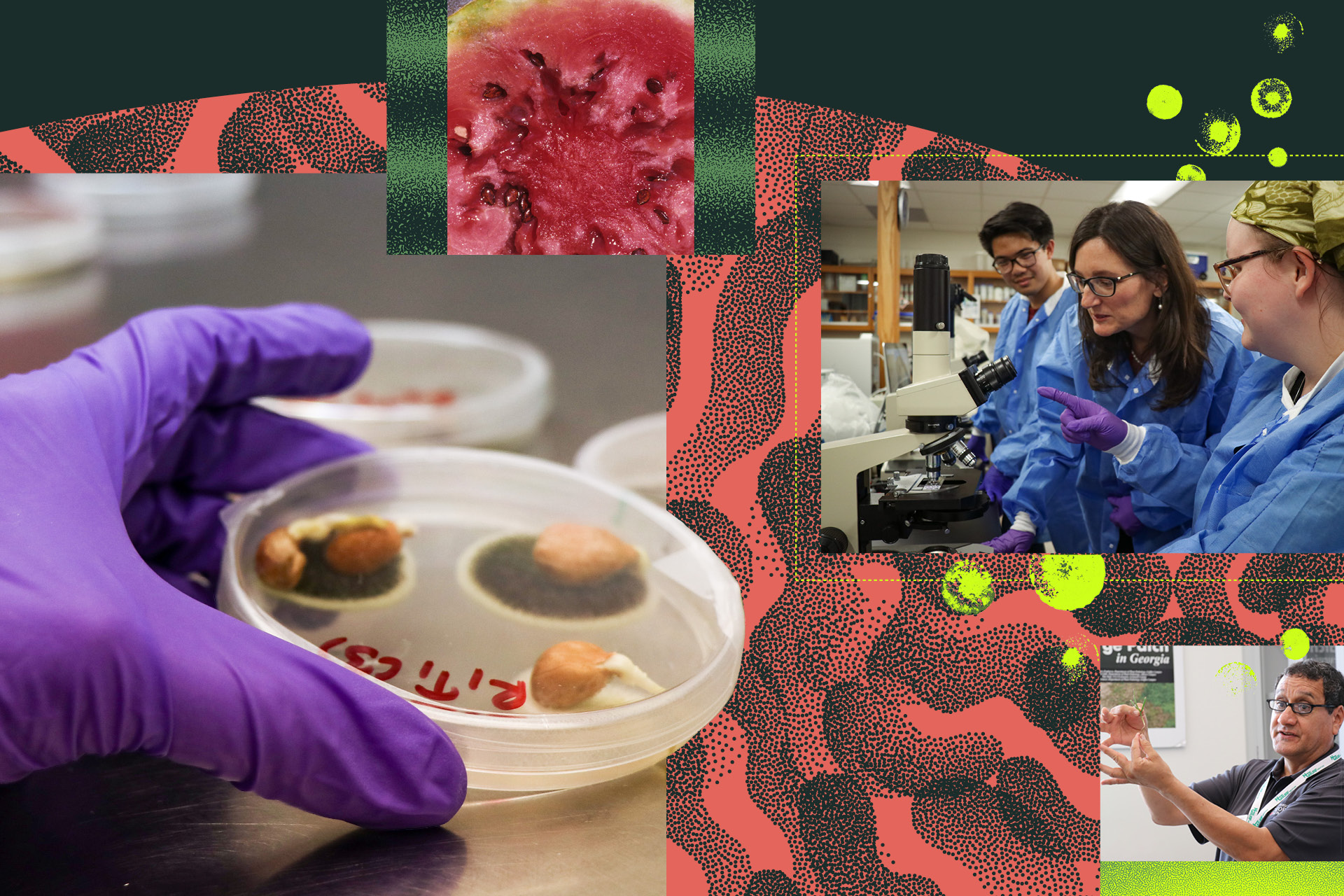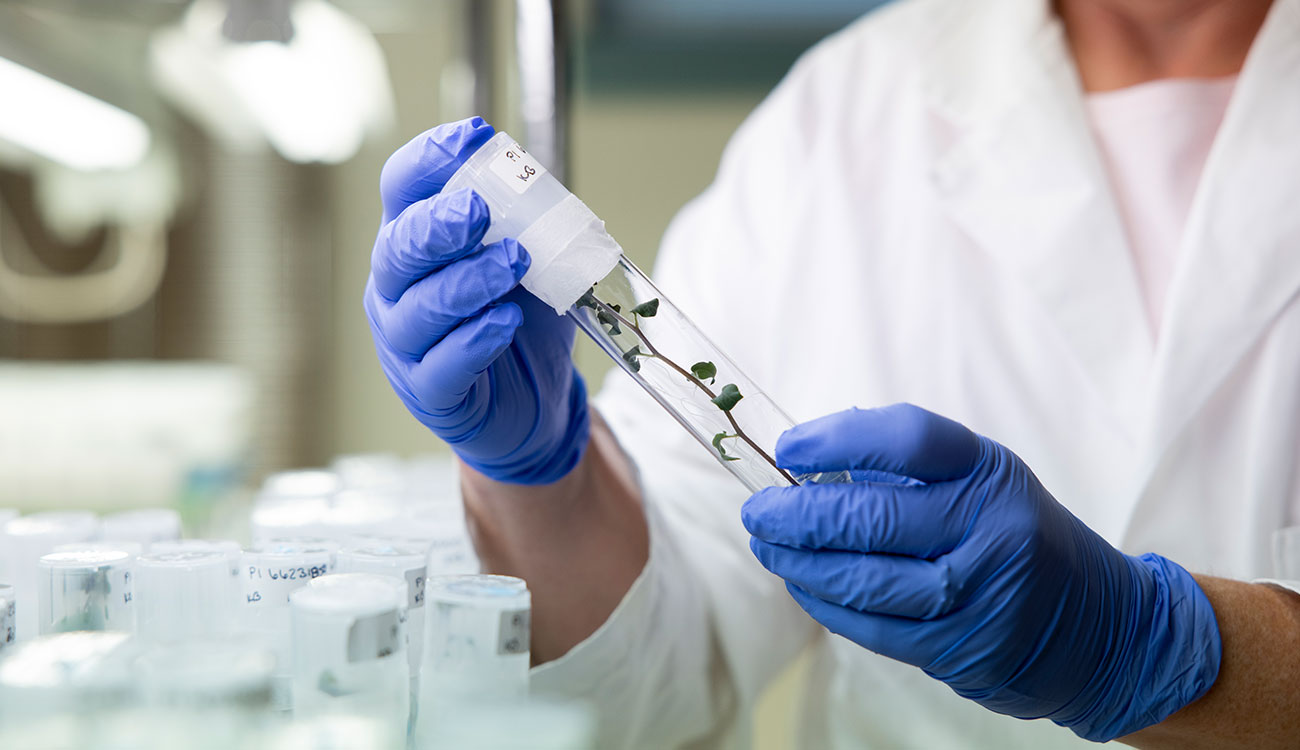 CAES News
CAES News
Plant Power
With record-breaking temperatures and extreme weather escalating, the threats posed by climate change are intensifying — but the plants of tomorrow could help us meet the massive challenges of our warming planet. Plant genetics research at the University of Georgia spans schools, departments, disciplines and centers. From the College of Agricultural and Environmental Sciences to Franklin College of Arts and Sciences, UGA faculty with genetics expertise are seeking plant-based solutions to societal challenges.

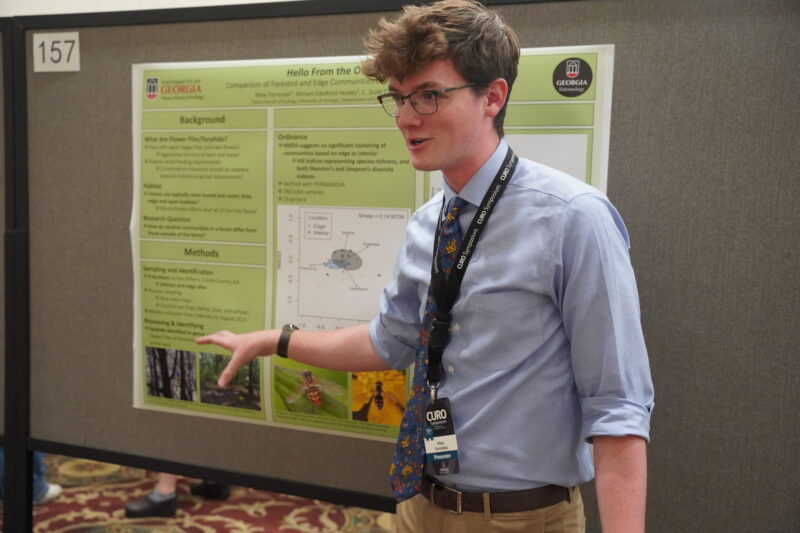
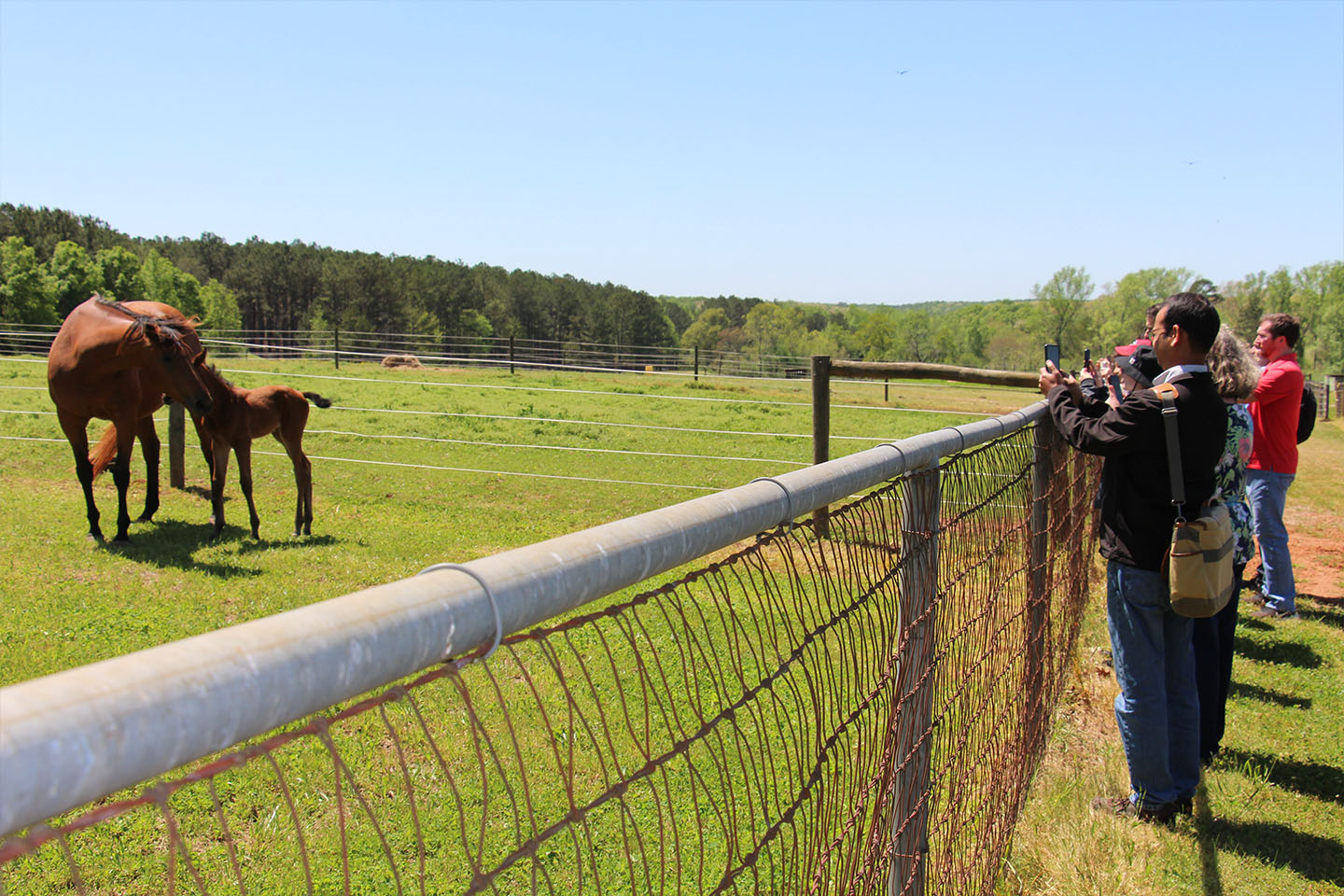
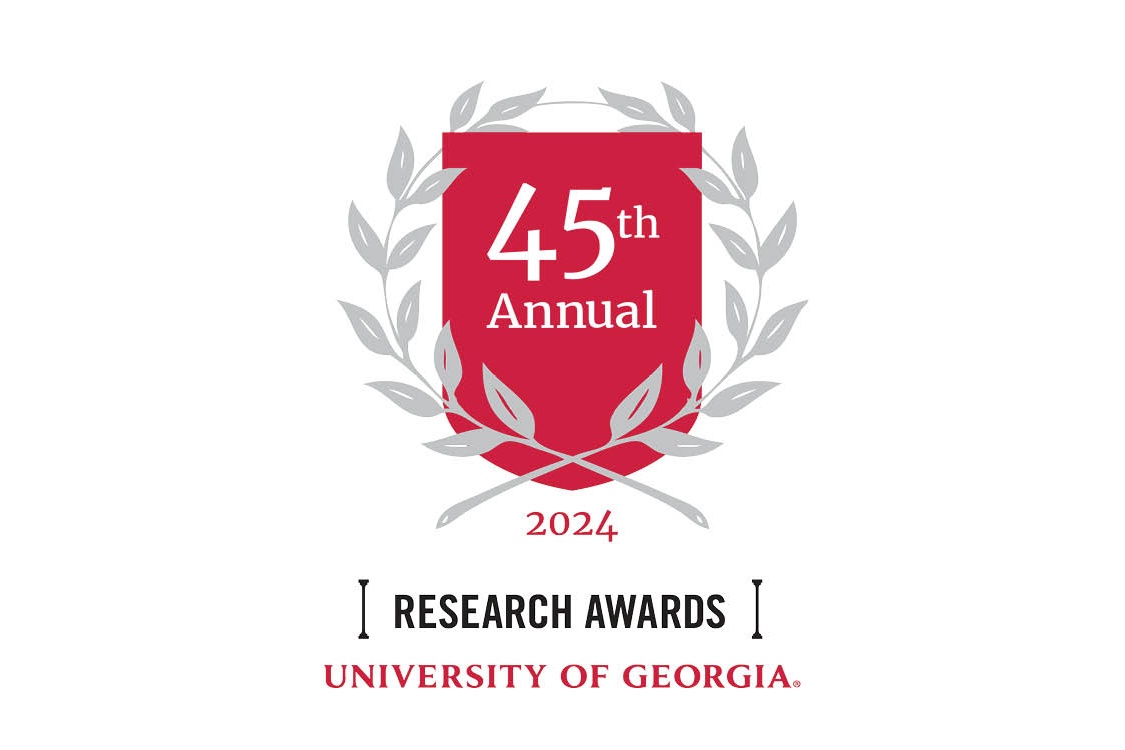
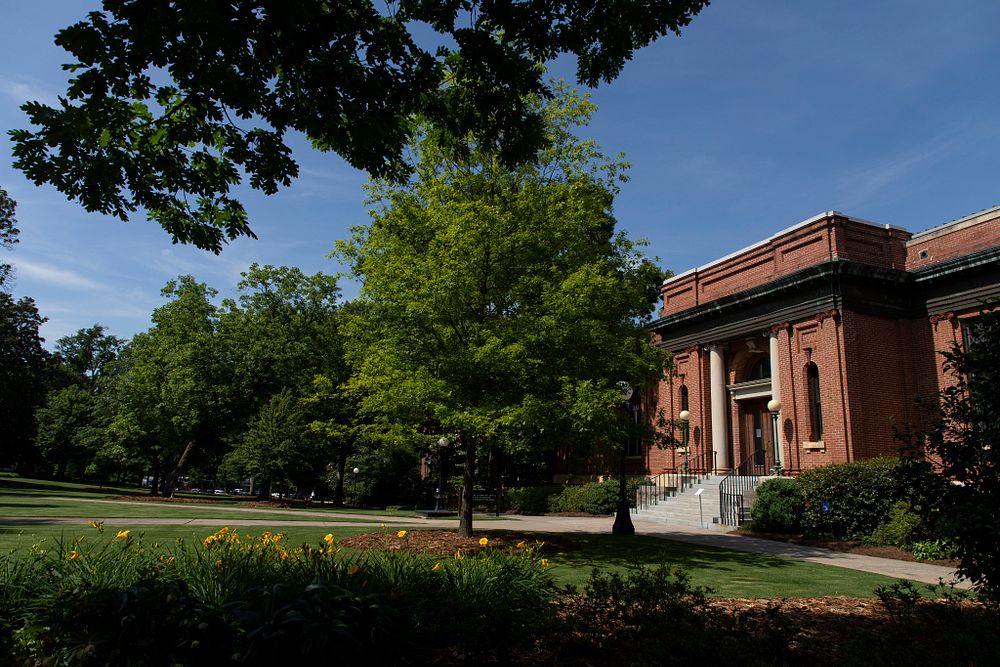

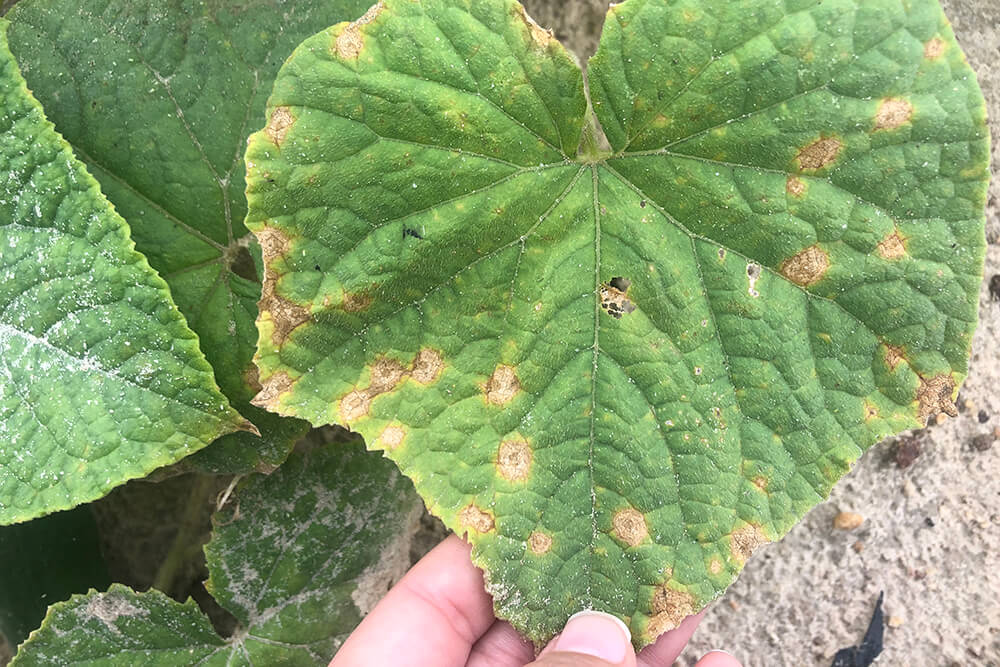
.png)
